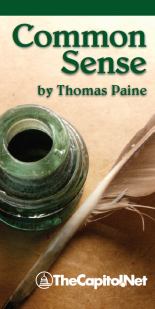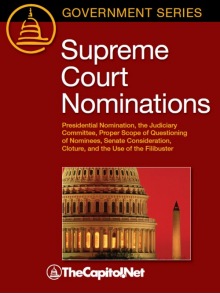
Energy: Ethanol
Energy: Ethanol
The Production and Use of Biofuels, Biodiesel, and Ethanol; Agriculture-Based Renewable Energy Production Including Corn and Sugar; The Ethanol “Blend Wall”; Renewable Fuel Standard (RFS and RFS2); Cellulosic Biofuels; 2007 Energy Bill; 2008 Farm Bill; Food and Livestock Feed Price Inflation; Caribbean Basin Initiative; and U.S.-Brazil Energy Cooperation
Compiled by TheCapitol.Net
Authors: Brent D. Yacobucci, Randy Schnepf, Salvatore Lazzari, Megan Stubbs, Fred Sissine, Remy Jurenas, Scott A. Malcolm, Marcel Aillery, Marca Weinberg, Kelsi Bracmort, Tom Capehart, Joe Richardson, Geoffrey S. Becker, and Clare Ribando Seelk
Biofuels have grown significantly in the past few years as a component of U.S. motor fuel supply. Current U.S. biofuels supply relies primarily on ethanol produced from Midwest corn. Today, ethanol is blended in more than half of all U.S. gasoline (at the 10% level or lower in most cases). Federal policy has played a key role in the emergence of the U.S. biofuels industry in general, and the corn ethanol industry in particular. U.S. biofuels production is supported by federal and state policies that include minimum usage requirements, blending and production tax credits, an import tariff to limit importation of foreign-produced ethanol, loans and loan guarantees to facilitate the development of biofuels production and distribution infrastructure, and research grants.
Since the late 1970s, U.S. policy makers at both the federal and state levels have enacted a variety of incentives, regulations, and programs to encourage the production and use of agriculture-based renewable energy. Motivations cited for these legislative initiatives include energy security concerns, reduction in greenhouse gas emissions, and raising domestic demand for U.S.-produced farm products.
Ethanol and biodiesel, the two most widely used biofuels, receive significant government support under federal law in the form of mandated fuel use, tax incentives, loan and grant programs, and certain regulatory requirements.
Ethanol plays a key role in policy discussions about energy, agriculture, taxes, and the environment. In the United States it is mostly made from corn; in other countries it is often made from cane sugar. Fuel ethanol is generally blended in gasoline to reduce emissions, increase octane, and extend gasoline stock.
U.S. policy to expand the production of biofuel for domestic energy use has significant implications for agriculture and resource use. While ongoing research and development investment may radically alter the way biofuel is produced in the future, for now, corn-based ethanol continues to account for most biofuel production. As corn ethanol production increases, so does the production of corn. The effect on agricultural commodity markets has been national, but commodity production adjustments, and resulting environmental consequences, vary across regions. Changes in the crop sector have also affected the cost of feed for livestock producers.
2010, 444 pages
ISBN: 1587331918 ISBN 13: 978-1-58733-191-6
Softcover book: $25
For more information, see TCNEthanol.com
Read more




